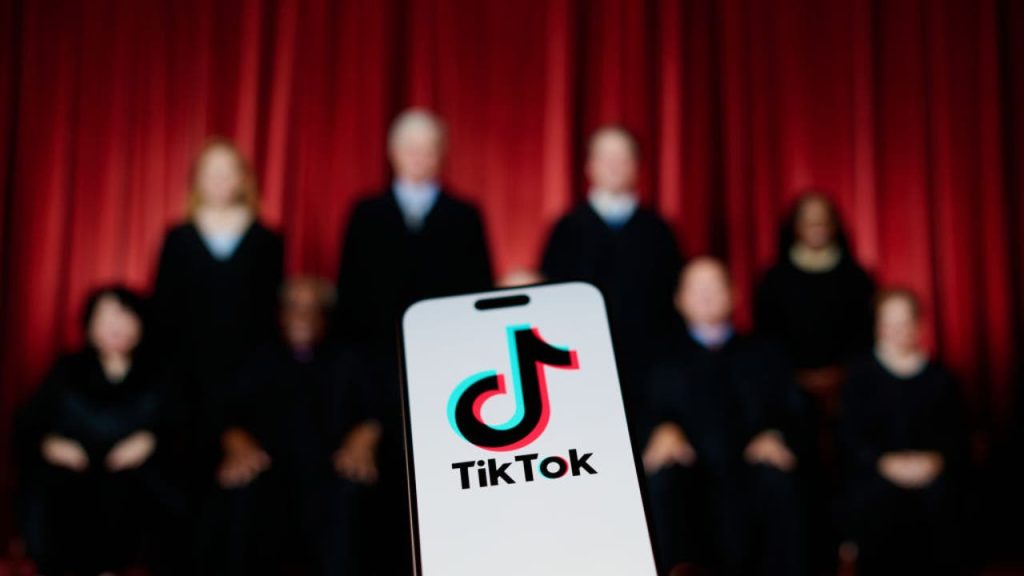The future of TikTok in the United States hangs precariously in the balance, caught in a geopolitical tug-of-war between the U.S. government and the Chinese-owned parent company, ByteDance. A looming deadline of January 19th, 2025, established by a new law, mandates that ByteDance either sell its U.S. operations or face a nationwide ban of the immensely popular short-form video platform. The Supreme Court recently heard arguments on the case, and while the justices’ opinions remain shrouded in secrecy, the clock is ticking towards a decision that could reshape the social media landscape.
This high-stakes legal drama centers on national security concerns. The U.S. government alleges that TikTok’s ties to China pose a significant risk, potentially allowing the Chinese government access to vast amounts of user data, including personal information, browsing habits, and even location data. The law, passed with bipartisan support and signed by President Biden, reflects a growing unease in Washington about the influence of Chinese technology companies and the potential for data exploitation.
TikTok and ByteDance are vehemently fighting back. They argue that the ban infringes on First Amendment rights, specifically freedom of speech and expression, and unfairly targets the company without sufficient evidence of wrongdoing. Their legal team contends that the government’s concerns are based on speculation and fear, not concrete proof of data breaches or malicious activity. They also emphasize that TikTok has taken steps to safeguard user data, including storing U.S. user information on servers located within the United States.
The Supreme Court justices heard oral arguments on January 10th, 2025, grappling with the complex legal and national security implications. While they didn’t explicitly reveal their leanings, some of their questioning seemed to express skepticism towards TikTok’s arguments. However, the court has not yet indicated when a decision will be issued, leaving both sides in suspense as the deadline rapidly approaches.
The implications of a ban are enormous. If the Supreme Court upholds the law, TikTok would be removed from U.S. app stores, preventing new downloads. Existing users would initially retain access, but the app would gradually degrade without updates or technical support, eventually becoming unusable. This would disrupt the online activity of millions of Americans, particularly younger users who have embraced TikTok as a primary platform for entertainment, communication, and even political engagement.
Adding another layer of complexity is the potential sale of TikTok’s U.S. operations. A group led by billionaire Frank McCourt, known as Project Liberty, has emerged as a potential buyer, reportedly securing verbal commitments of up to $20 billion to finance the acquisition. However, any sale would be complicated by the Chinese government’s insistence on retaining control of TikTok’s core algorithm, which it considers valuable intellectual property. This stipulation could pose a significant hurdle to any potential deal, as it would likely still raise concerns about data security and Chinese influence.
The current situation represents the culmination of years of scrutiny and pressure on TikTok. In 2020, former President Trump attempted to force a sale of TikTok’s U.S. operations, but those efforts ultimately stalled. The new legislation has reignited the debate, bringing the matter to a head and forcing a decisive resolution.
The central question before the Supreme Court is whether the government’s national security concerns outweigh TikTok’s First Amendment rights. The justices must weigh the potential risks of data exploitation against the principles of free speech and the potential disruption of a widely used platform. They must also consider the economic implications of a ban, including the impact on creators, advertisers, and the broader tech industry.
The stakes are high for all parties involved. For TikTok and ByteDance, the future of their business in the United States hangs in the balance. For the U.S. government, the decision will set a precedent for how it addresses national security concerns related to foreign-owned technology companies. And for millions of American users, the ruling will determine whether they retain access to a platform that has become deeply ingrained in their online lives.
Regardless of the outcome, the TikTok saga underscores the growing tensions between the U.S. and China in the digital realm. It highlights the challenges of balancing national security concerns with individual freedoms in an increasingly interconnected world. The Supreme Court’s decision will have far-reaching consequences, shaping not only the future of TikTok but also the broader landscape of technology, free speech, and geopolitical relations. The world awaits the verdict.


